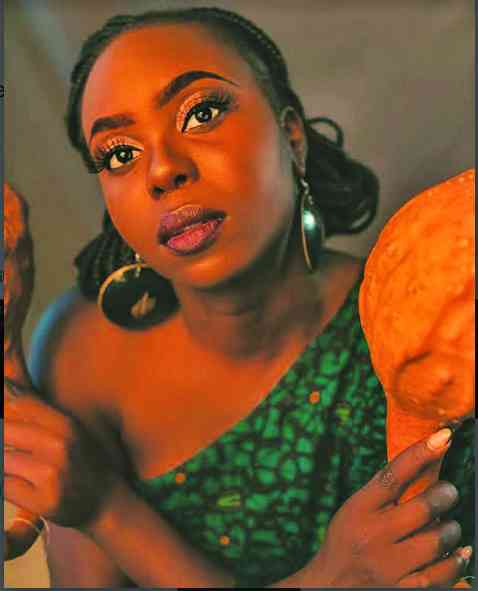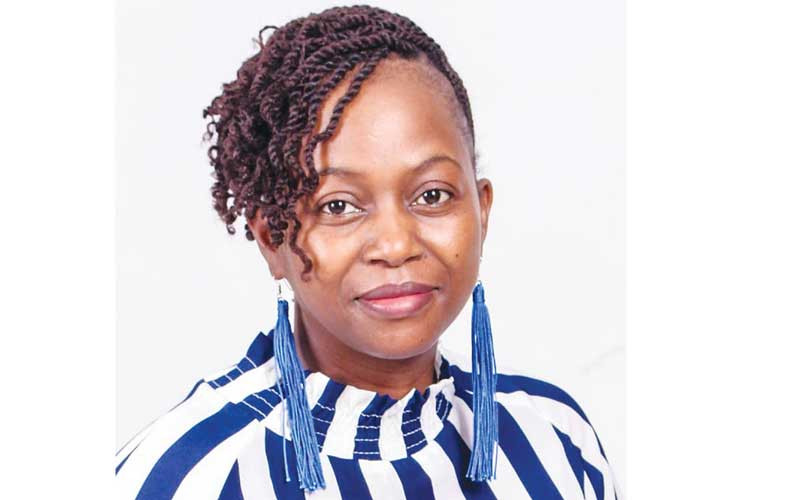
AWARD-WINNING Afro-fusion artiste Mary Anibal left the audience shouting for more following her innovative mbira articulation at the recently held Sauti za Busara Festival Mainstage in Zanzibar from February 9 to 11.
The festival also featured two Zimbabwean artistes Selmor Mtukudzi and Fly Bantu who left an indelible mark in the east African tourist resort as music became a tool for cultural harmony.
Anibal was highly inspirational as she blended folk and traditional music that reflected Zimbabwean culture through her hit songs Bhonzo Muderere, Gogoride, Mvura, Narini and Vana Ava, among others.
Anibal described the Sauti Za Buzara (Kiswahili for sounds of wisdom) Festival as a platform not only meant for enjoyment of music and cultural diversity, but for creating cultural harmony.
She told NewsDay Life & Style that Sauti za Busara, a festival held in Stone Town, Zanzibar every year, is a celebration of music and culture from all over Africa.
“I think the biggest lesson that can be taken from Sauti za Busara is the importance of celebrating and supporting the arts in Africa. The festival provides a platform for artistes to share their work, connect with other artistes, and inspire others to create,” Anibal said.
“It also celebrates the art of individual voices and unique perspectives and it is a reminder that there is value in being authentic and original. It is also a reminder of the importance of taking risks and trying new things.
Many of the artistes at Sauti za Busara are pushing boundaries and experimenting with new forms of expression. Finally, it is a reminder of the power of community and collaboration,” said Anibal.
- Interactive feedback: Overcoming like Tonny and I
- Nasibo to grace Tanzanian music festival
- When food festival celebrates heritage, promotes tourism
- January: A gloomy month for the Manatsas
Keep Reading
Anibal challenged the corporate world to embrace the arts as a marketing tool as well as a means of extending their outreach to the communities.
The Sauti za Busara Festival has in the past showcased Zimbabwean artistes and bands like Mokoomba, Edith WeUtonga, Evans Mapfumo, Silent Nqo and Nasibo, among others who self-sponsored to attend.
For Anibal, most of it was self-funded and support from individuals and organisations which include and are not limited to Nadine McNulty, Jacob Mafuleni, Music Crossroads Academy Zimbabwe, Trust Samende and Tichaona Muchemwa.
“I went earlier on the 3rd for the Swahili encounters which was a collaborative project, hosted in partnership with Zanzibar’s Dhow Countries Music Academy in the week leading up to the festival, which culminates in performances on the main stage.
Notably, other artistes invited to participate in Swahili Encounters 2024 included: Fatime Songoro, saxaphone; Siti Amina, oud/vocal; Islam Elbeiti, bass; Ally Omar Chacha (Chudo), djembe/nyatiti; Hassan Mahenge, percussion, saxophone; Girum Mezmur, accordion; Alhousseini Mohammed, guitar; Muhonja, vocal; Mariam Namuyodi, drum; and myself Mary Anibal on vocals and mbira.
“Our rehearsals commenced on the 4th till the 9th of February and I enjoyed the fusion of our different traditional sounds and it was really amazing to work with the legends like Groom who was part of this project. Networking was interesting besides rehearsing together really helped in putting out a solid act on the 10th”
Anibal admitted that she learnt a lot from the performances by African music legends like Stewart Sukuma from Mozambique, Made Kuti from Nigeria, Zoe Modiga from South Africa and the act by fellow Zimbabwean performer Selmor Mtukudzi and Flying Bantu.
“We presented a vibrant and energetic performance of traditional fusion music. And the feedback we received from the audience was pretty amazing and we made connections for future projects,” she said.
Now widely travelled Anibal started performing as a musician from an early age in church and school and her passion and desire to become a professional musician grew stronger over the years.
Her professional career started in 2016 as a mbira session musician and she hogged the limelight in 2017 when she shared the stage with Soa Roy, a group from Madagascar, and Forest Jam at the Harare International Festival of Arts.
Anibal has beefed up her career by studying at the Music Crossroads Academy and during her period of learning she backed the Zimbabwean internationally celebrated Jah Prayzah’s Third Generation Band.
As a solo artiste, she performed at the 2022 Jacaranda Music Festival in Harare, the Habari Africa festival in Toronto Canada and the recently held Sauti za Busara Festival in Tanzania.
Anibal’s ensemble consists herself as lead singer on hosho and mbira; Tinotenda J Zingapeta — bassist and vocals; Exodus Bande — keyboardist and vocals; Abel Mafuleni — mbira and vocals; Tichaona Muchemwa — guitar and vocals; and Malvern Chiremeri — drummer and vocals.







